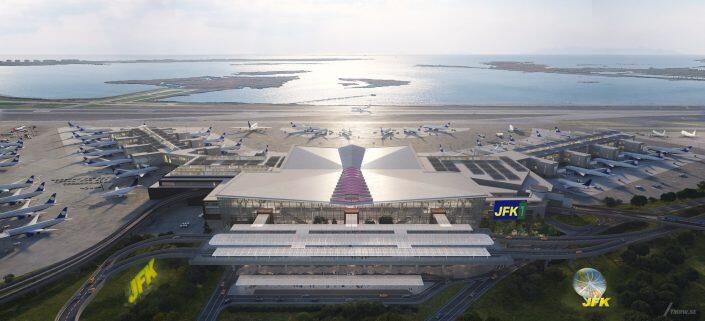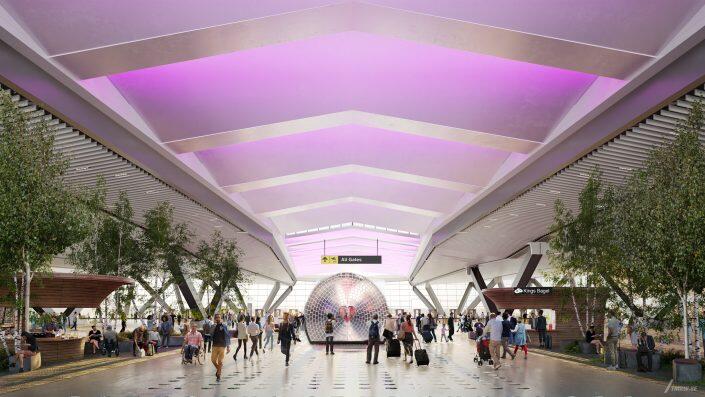The Terminal 1 project at John F. Kennedy International Airport is ready to take off, with a new $9.6 billion price tag.
Gov. Kathy Hochul announced Monday that the deal for the terminal has been restructured, allowing the project to move forward after a two-year delay. A consortium led by the Carlyle Group along with Johnson Loop Capital Infrastructure and Union Labor Life Insurance Company will finance the development, which is now expected to break ground in mid-2022.

(PANYNJ)
The latest cost estimate includes $7.2 billion for design and construction and $2.3 billion in “financing and other costs,” Rick Cotton, executive director of the Port Authority of New York and New Jersey, said during a press conference Monday. Previous estimates had pegged the project’s total cost at $7.4 billion.
When asked about the difference, a spokesperson for the Port Authority attributed the increase to changes to the construction timeline and inflation, deferring further questions to the consortium of developers.
“Project costs have increased to account for the recent inflationary pressures that are being observed across all sectors of our economy,” a spokesperson for the consortium said, adding that travelers will still see rates “competitive with other terminals at JFK, as well as other world-class airport terminals globally.”

PANYNJ
The Port Authority is expected to vote on an amended version of the lease agreement with the Carlyle-led consortium on Thursday. In 2019, its Board of Commissioners approved a lease that would have expired in December 2050. The new deal would expire in 2060, giving the investors more time “to recover their multi-billion-dollar investments,” the governor’s office noted in a press release.
The project is part of a planned $13 billion overhaul of the airport, which was initiated under the Cuomo administration. The new Terminal 1 will include 23 international gates across 2.4 million square feet, spanning the collective footprints of current Terminals 1 and 2, as well as the former site of Terminal 3, which was demolished in 2013.
The project was delayed during the pandemic, and while other major infrastructure projects were called into question when Hochul took office, the JFK overhaul appeared to remain one of her priorities.
